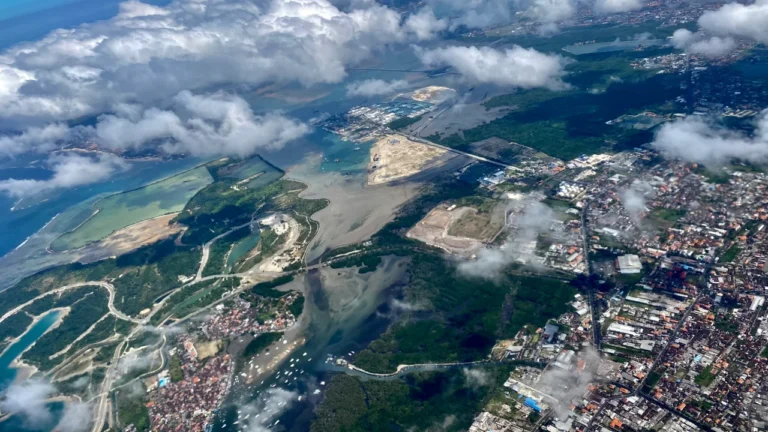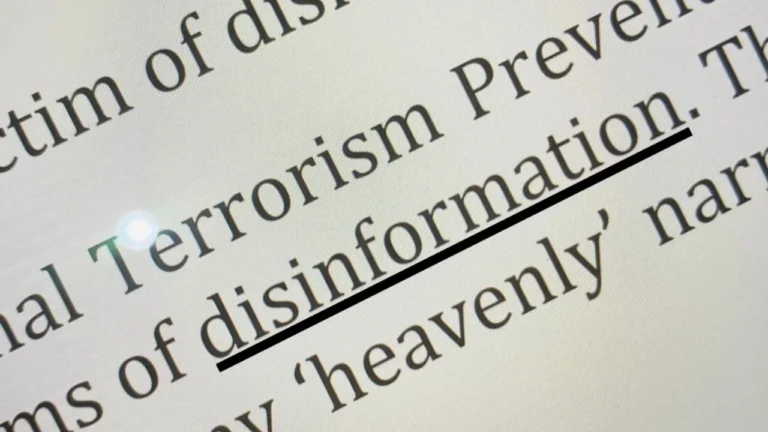The Influence of Islamic Organizations on Indonesian Politics

According to data from The Royal Islamic Strategic Studies Centre (RISSC), the Muslim population in Indonesia reaches 237.55 million people. This makes Indonesia the country with the largest Muslim population in the world. Differences in understanding and application of religion have led to the emergence of diversified Islamic religious organizations in social and political activities.
There are two different thoughts. The first group embraces Islam as an international humanistic expression that is compatible with democracy and pluralism, while the second group is conservative and opposes democratization and diplomatic relations with Western countries. NU and Muhammadiyah, born during the pre-independence era, represent the first group, while FPI and HTI, born after the New Order, represent the second group, both of which have been dissolved now.
Prof. Hamdi Muluk, Professor of Political Psychology at the University of Indonesia, explained that, “What should be considered as Islamic organizations here are NU and Muhammadiyah. FPI and HTI can also be considered as Islamic organizations, but they are extremely right-wing and have been banned, just like other Islamic groups or organizations such as Jamaah Ansharut Daulah (JAD), Jamaah Ansharut Tauhid (JAT), and NII that have been banned because their ideologies are not in line with our final constitutional values”.
The Influence of Islamic Organizations on the Formation of Islamic Political Parties
The presence of Islamic organizations in Indonesia has a significant influence on government policies and the political system in the country. Islamic organizations such as NahdlatulUlama (NU) and Muhammadiyah play an important role in instilling social, educational and religious values, and the development of public policies. Although they are not political parties, their involvement with political parties helps mobilize voters during elections.
NU and Muhammadiyah have a long history of relations with Islamic political parties. NU, as one of the largest Islamic organizations in Indonesia, once left the Masyumi party in 1952 and participated in the elections in 1955. However, after the 1994 congress, NU made the decision to “return to the khittah 26”, which emphasized its focus on social and religious organizations. However, after the reform era, a number of kyai (Islamic scholars) from NU agreed to form a political party based on Ahlussunnah wal Jamaah principles, named the National Awakening Party (PKB).
Muhammadiyah, another Islamic organization, was founded in 1912 with a focus on social and religious fields. After the reform era, there was a debate within Muhammadiyah about the need to establish a political party. Supporters argued that a political party sponsored by Muhammadiyah had the potential to play an important role in the national political stage. One of the main figures supporting this idea was Amien Rais. However, there were also those who opposed this policy because they were concerned that a political party could threaten social and religious activities. Finally, Muhammadiyah agreed to let Amien Rais establish a political party, but Rais had to relinquish his position as the leader of Muhammadiyah. As a result, the National Mandate Party (PAN) was formed.
According to Dr. Zachary Abuza, these two Islamic organizations play an important role in defining political discourse, articulating new public policies, and mobilizing voters in general elections. They can also assist secular politicians like Jokowi in mobilizing voters by collaborating with Islamic parties.
On the other hand, there are Islamic organizations such as Hizbut Tahrir Indonesia (HTI) and the Islamic Defenders Front (FPI) that have a more radical view of the existing political system. HTI, as a transnational political movement networked with the Global Hizbut Tahrir Movement, supports social and religious change through the replacement of the government system with the Khilafah. They do not participate in elections because they believe that democracy is contrary to Islam. FPI, on the other hand, demands the full implementation of Islamic Sharia law and conducts resistance actions against government policies that are considered contrary to Sharia.
After the dissolution of HTI and FPI, many Islamicorganizations and other Islamic parties emerged, such as the Prosperous Justice Party (PKS), the Crescent Star Party (PBB), and the United Development Party (PPP). Although based on Islamic values, these political parties adopt nationalist ideologies as their main ideology.
The presence of Islamic organizations and political parties contributes to the diversity and dynamics of Indonesian politics. The position of Islamic organizations is important in the political process because they have a strong voter mobilization power. However, caution is needed to prevent radicalization or a shift in focus from social and religious activities to politics, which may threaten diversity and national stability. Nevertheless, Islamic organizations and political parties continue to play an important role inIndonesian democracy.
The Defeats, Opportunities, and Challenges of Islamic Parties in Indonesia
Although Indonesia is a country with the largest Muslim population in the world, Islamic political parties in Indonesia have never succeeded in winning electoral competitions in legislative elections. Surveys show the potential decline in support for Islamic-based parties in the 2024 elections. This is in contrast to the Middle East and North Africa region, where some Islamic parties have achieved victory. Why does this happen in Indonesia?
Dr. Zachari Abuza mentioned several factors that underlie the defeat of Islamic political parties in Indonesia. First, the majority of Indonesian society still maintains a secular orientation. Second, Islamic parties do not have a strong economic vision and fail to articulate economic ideas that can contribute to nation-building. Third, Islamic parties often compete with each other and are often characterized by factionalism and egoism.
Prof. Hamdi Muluk added that Islamic political parties with more radical agendas only garner very small support, while the majority of Islamic party supporters tend to support parties with Islamic values that are absorbed within nationalist ideologies.
Although Islamic political parties often face defeat in legislative elections, they still have significant support. The opportunity for Islamic parties depends on their ability to present meaningful economic programs and improve good governance practices.
Overall, the presence of Islamic political parties holds significant importance in the political plurality of Indonesia. Islamic parties are not only a channel for the aspirations and interests of Muslims, but also an integral part of Indonesia’s pluralistic identity. The prospects of Islamic parties in the future depend on their ability to provide solutions based on Islamic values to national issues. The challenges faced by Islamic parties in the future will be more arduous, but it is important for them to improve the quality of their presence and contributions in the practice of fair, accountable, and integrity-driven Indonesian democracy.
In facing these challenges, Islamic politics must be viewed from four different currents. Some try to combine, some choose to separate, some strive to work together, while others do not attempt to walk together. It is important to utilize the concept of “salt politics” when implementing Islamic law, where Islamic values are not exclusively advocated by one party, but spread throughout society.
In the end, Islamic political parties in Indonesia need to continue adapting and find effective ways to strengthen and maintain support. They must be able to face the challenges and complexities of Indonesian politics.



